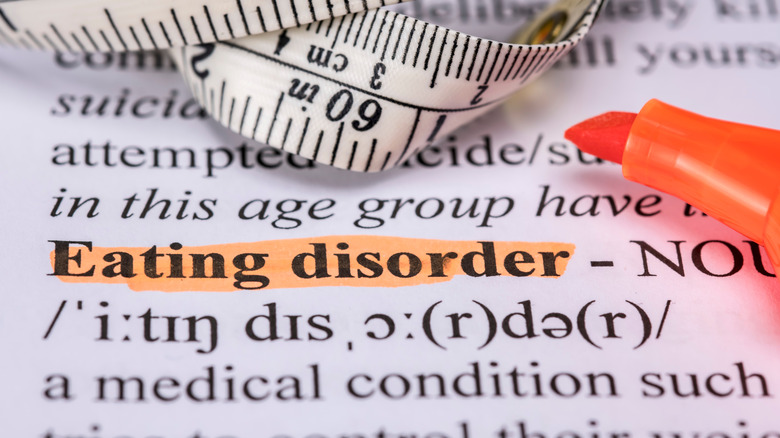Eating disorders are complex and potentially life-threatening, making the need for adequate treatment critical. But for some, getting treatment for an eating disorder might be harder than for others.
Eating disorders (EDs) are serious illnesses characterized by a preoccupation with weight, food, and body shape (via Mayo Clinic). This can mean excessively limiting food, extreme exercising, binge eating, and purging after eating. The most common EDs are anorexia nervosa, bulimia nervosa, and binge-eating disorder, which often first develop in the teen and young adult years.
The disorders can result in inadequate nutrition, digestive system issues, heart issues, and even death. In fact, about 10,200 deaths each year are attributed to EDs, according to the National Association of Anorexia Nervosa and Associated Disorders (ANAD). That’s one death due to EDs every 52 minutes.
Across the globe, EDs affect at least 9% of people, and in the U.S., 28.8 million Americans will experience an ED at some point in their lives (per ANAD). EDs also affect transgender people at much higher rates than cisgender folks, with research showing that transgender college students were four times more likely to experience disordered eating than their cisgender peers. Those who are transgender, especially those who don’t have access to gender-affirming medical care, may be more likely to use disordered eating to change their appearance or control their gendered characteristics (via Healthline).
Barriers to ED treatment in the transgender community

Inequality is especially apparent in treatment for EDs (via Healthline). Our healthcare system often overlooks the transgender community, which includes ED treatment. Transgender folks also face more barriers to receiving adequate healthcare as compared to those who are cisgender.
One barrier is cost. Inpatient treatment for EDs is incredibly expensive, ranging from $500-$2,000 per day, with some treatments lasting for 3-6 months. Outpatient care also comes with a hefty price tag, costing as much as $100,000 or more over a lifetime. Transgender folks are often less likely to have adequate health insurance, and more likely to live in poverty, so cost is a major barrier in receiving treatment despite being a higher-risk community.
A 2024 study showed that many of those who were transgender and seeking treatment for EDs reported negative experiences with clinicians. They cited feeling dismissed and mistreated, and felt that the providers were incompetent. Sometimes, fear of transphobia prevented patients from seeking treatment.
Since inadequate care for this population has the potential to be life-threatening, ED treatment needs to become more accessible and trans-inclusive, points out Healthline. Resources like Project HEAL are working to combat these barriers to treatment and help marginalized folks access proper care for EDs.
If you are struggling with an eating disorder, or know someone who is, help is available. Visit the National Eating Disorders Association website or contact NEDA’s Live Helpline at 1-800-931-2237. You can also receive 24/7 Crisis Support via text (send NEDA to 741-741).








